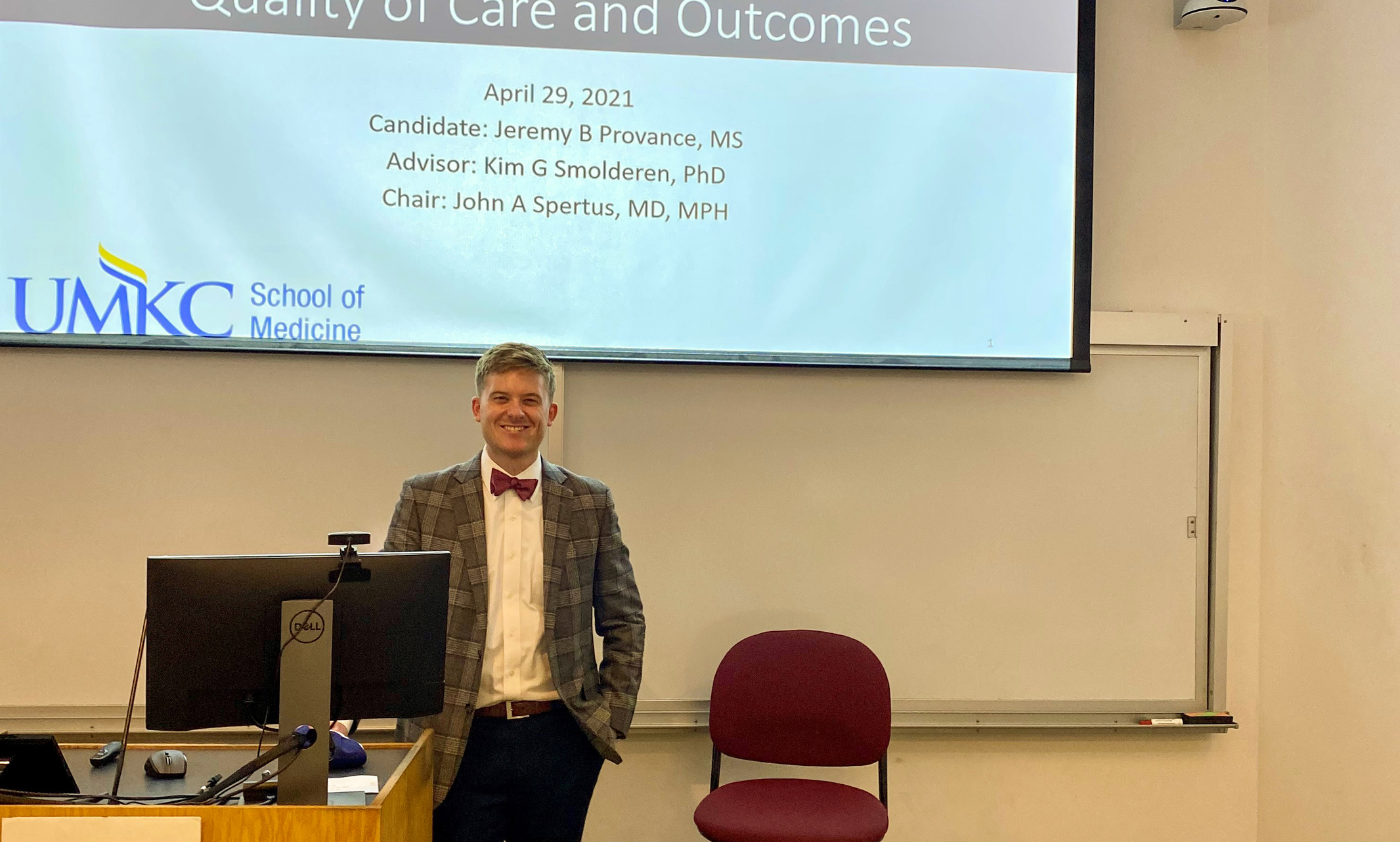Jeremy Provance was always interested in both health care and computers but wasn’t sure how to fit them together. The UMKC School of Medicine provided his answer.
This month, Provance will be the first Ph.D. graduate from the medical school earning an interdisciplinary doctorate in biomedical and health informatics. He describes the field as taking the enormous amount of health data that is generated every day and “making sense of all of those data points and telling the story about what is happening with our health.”
Provance didn’t know bioinformatics and data science existed until he found them as part of UMKC’s interdisciplinary Ph.D. program. The program allows students to work across disciplines to develop an individual academic plan geared to their specific interest.
Through collaboration with UMKC’s School of Graduate Studies, the School of Medicine started offering bioinformatics as a co-discipline in 2014 and as a primary discipline in 2017. Studying this emphasis, students like Provance primarily focus on biomedical data and knowledge, using that information in problem solving and decision making to develop technology and processes that will shape the future of health care.
Provance earned his master’s degree in bioinformatics at the School of Medicine in 2017. He then continued in the I-Ph.D. program where he found several appealing factors during his studies, including the school’s quality of faculty, research opportunities and interdisciplinary aspect.
“My mentors were so critical to my success, and the faculty were such excellent people both in and out of the classroom. And bioinformatics is a such broad discipline – you can specialize in many different areas.”
“My mentors were so critical to my success, and the faculty were such excellent people both in and out of the classroom,” he said. “And bioinformatics is a such broad discipline – you can specialize in many different areas.” Provance’s studies focused primarily on cardiovascular outcomes research through the Mid America Heart Institute at Saint Luke’s Hospital.
Fostering collaborations with area institutions and corporations and across disciplinary boundaries are the program’s strengths, according to Jenifer Allsworth, Ph.D., and the bioinformatics department vice chair. “Through these partnerships, our students work with and alongside people from different organizations and backgrounds. We are training students to have the skills to best contribute in a rapidly evolving field.”
Provance says his overall goal is to understand “what we do well as individuals, doctors and health systems, and to encourage those practices and to identify areas for improvement to change them for the better.” Soon, he’ll be doing just that at the Yale School of Medicine, where he’s accepted a research position with its Vascular Medicine Outcomes Group.
“I would not have been successful without the guidance of my research advisor, Dr. Kim Smolderen, and my dissertation chair, Dr. John Spertus. And certainly there are so many others – brilliant researchers, administrators, clinicians, fellow students and more – that helped me find my way through this program,” he said.
Though he was familiar with bioinformatics through his master’s degree, Provance says it’s hard to anticipate doctoral work until you are going through it. His advice to others considering the I-Ph.D. program? Find a strong mentor and understand the importance of collaboration and networking. “It makes all the difference when you are identifying the path forward,” he said.
And though it was four years of hard work, overall, Provance says he’d do it all again. “But I’m glad I don’t have to!”

